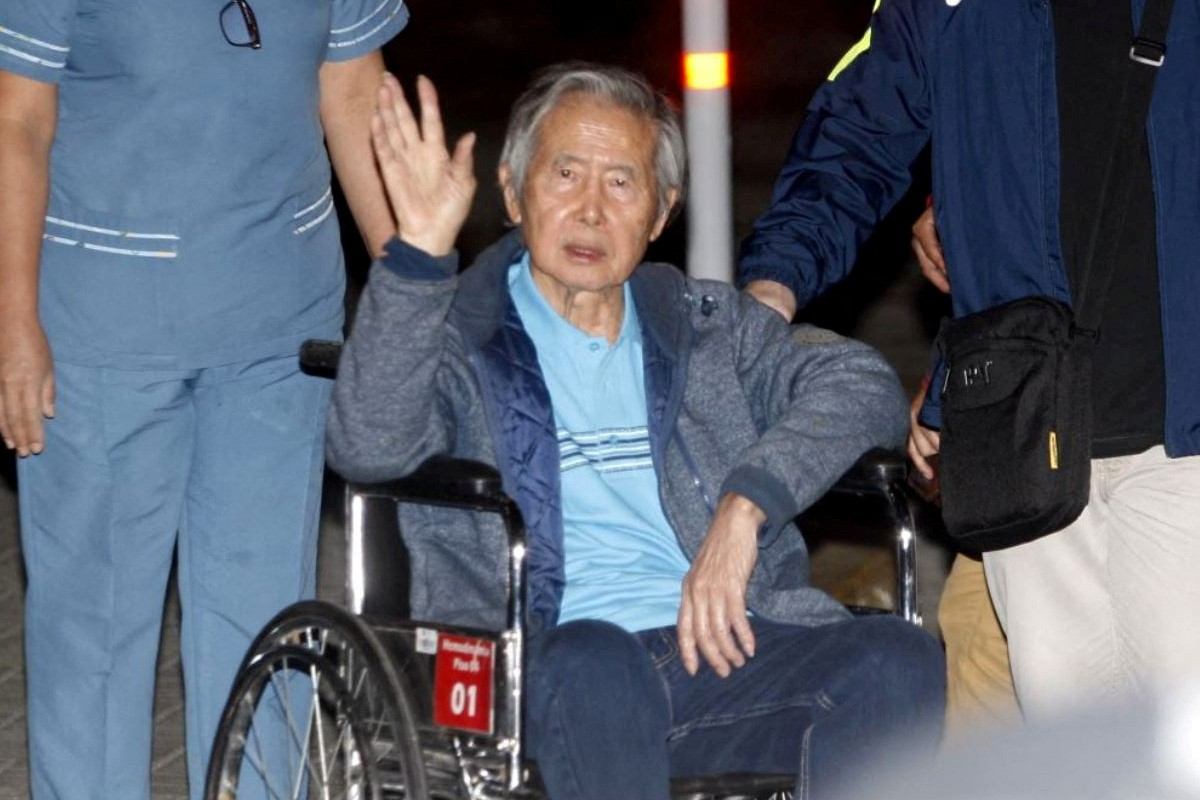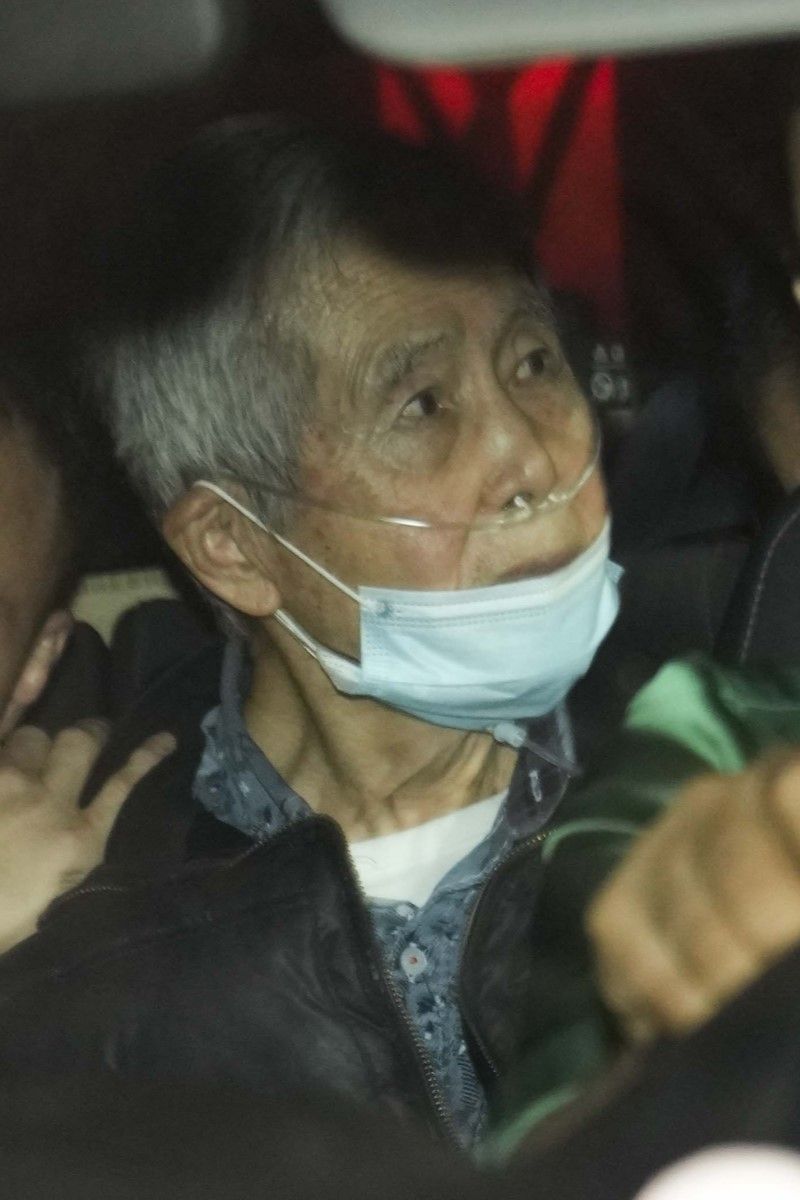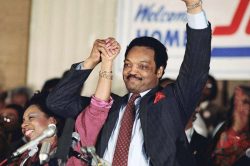Opinion Divided On Former Peruvian President; Alberto Fujimori Hailed As Hero in Hostage Crisis, Jailed Over Human Rights


Left: Then Peruvian President-elect Alberto Fujimori is seen in Kumamoto Prefecture’s Kawachi, now Kumamoto City, in July 1990.
Right: Then Peruvian President Alberto Fujimori tells military members where to take positions during the Japanese Embassy Hostage Crisis in Lima in April 1997.
17:21 JST, September 12, 2024
RIO DE JANEIRO — Former Peru President Alberto Fujimori, who died Wednesday, was lauded for rebuilding that nation’s economy and his leadership amid the 1996 hostage crisis at the Japanese ambassador’s residence, but his heavy-handed political methods also attracted criticism.
Fujimori retained significant clout in Peru’s political circles even in his later years. However, public opinion was split over his continuing influence.
Fujimori, whose parents were from Kumamoto Prefecture, was a second-generation Japanese Peruvian and the first person with Japanese roots to become that nation’s president. After graduating from the National Agrarian University in Lima, he studied in France and the United States before becoming president of that university.
In 1990, Fujimori successfully ran for president of Peru.
During his time in office, Fujimori pushed ahead with market-opening policies and revived Peru’s battered economy. His commitment to building important infrastructure is one reason why he remains highly popular today, especially among poorer segments of the population.
After members of the Tupac Amaru Revolutionary Movement left-wing guerrilla group stormed the Japanese ambassador’s residence in Lima, Fujimori rejected the group’s demand for prisoners to be released. An underground tunnel was dug beneath the residence, through which special forces entered the building and freed most of the about 70 hostages.
Fujimori’s iron-fisted methods, such as his suspension of Peru’s Constitution and dissolution of Congress, created a negative legacy that has been cited as one reason his oldest daughter, Keiko, was defeated in all three of her bids to become president.

Former Peruvian President Alberto Fujimori leaves the Centenary hospital in Lima, Peru, January 4, 2018.

Peru’s former President Alberto Fujimori is driven out of prison by one of his lawyers, after his release, in Callao, Peru, Dec. 6, 2023
In September 2000, during Fujimori’s third term as president, a close aide was found to have bribed opposition lawmakers. Fujimori, who had traveled to Japan, sent his resignation to Peru’s Congress, but it was not accepted and he was dismissed from office.
After effectively living in exile in Japan for several years, Fujimori went to Chile in November 2005, where he was placed under house arrest. He was then extradited to Peru in 2007 and jailed. While in Chile, Fujimori created a stir in Peru by running for election to Japan’s House of Councillors.
In January 2010, Fujimori was sentenced to 25 years in prison for human rights violations committed while he was president. He served time behind bars, but was granted a pardon in 2017.
However, he was imprisoned again until a constitutional court reinstated his pardon and he was released in December 2023.
In a video shot from his hospital bed after being pardoned, Fujimori apologized and asked “the citizens I let down” for forgiveness “from the bottom of my heart.”
But after securing his freedom, Fujimori posted messages hailing his accomplishments as president on his official website and social media accounts, and made a string of comments justifying his actions. Fujimori also insisted he was innocent in an incident in which special forces personnel killed six farmers and students during an operation to clear out left-wing guerrillas.
“I am not a murderer,” Fujimori declared. “My government simply protected the people who live in every corner of the nation.”In July, Fujimori announced his intention to run in Peru’s next presidential election. He continued to cling to power until the very end.
Top Articles in Society
-

Producer Behind Pop Group XG Arrested for Cocaine Possession
-

Man Infected with Measles Reportedly Dined at Restaurant in Tokyo Station
-

Man Infected with Measles May Have Come in Contact with Many People in Tokyo, Went to Store, Restaurant Around When Symptoms Emerged
-

Woman with Measles Visited Hospital in Tokyo Multiple Times Before Being Diagnosed with Disease
-

Australian Woman Dies After Mishap on Ski Lift in Nagano Prefecture
JN ACCESS RANKING
-

Producer Behind Pop Group XG Arrested for Cocaine Possession
-

Japan PM Takaichi’s Cabinet Resigns en Masse
-

Japan Institute to Use Domestic Commercial Optical Lattice Clock to Set Japan Standard Time
-

Man Infected with Measles Reportedly Dined at Restaurant in Tokyo Station
-

Israeli Ambassador to Japan Speaks about Japan’s Role in the Reconstruction of Gaza
























